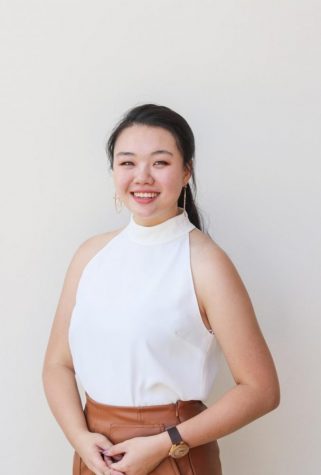Sophomore cinema media and arts major Krista Ramirez uses a wheelchair. Often, this causes her to have difficulty accessing certain buildings on campus. Older buildings on campus such as some dormitories like Sigma Hall are especially frustrating for Ramirez.
“Sometimes I can’t visit my friends because they live on floors I don’t have access to,” Ramirez said.
However, Ramirez also says she has sources of assistance from various outlets such as the Learning Center and her professors.
“I recently communicated some of my struggles and [the Learning Center] said they were going to resolve the issue after spring break so that I can be better accommodated, so that’s kinda nice,” Ramirez said.
FALL 2018’S RED FLAGS
In fall 2018, professor of sociology Brad Christerson asked his Sociology of Disability class to gather statistics to determine whether or not the campus was properly made accessible to students with disabilities.
The students’ measurements and data found that some buildings on campus could be in violation of federal disability codes, including Biola’s newest building, the Alton and Lydia Lim Center for Science, Technology and Health.
However, upon further research and consultation, senior director of facilities management Brian Phillips confirmed that the building did not violate any rules issued by the Americans with Disability Act.
CURRENT ON-CAMPUS VIOLATIONS
Though the Lim Science Center is ADA-certified, concerns have still been brought about by the Learning Center over the steep, unrailed drop garden surrounding the side of the building, which could pose a high risk for visually impaired students. Phillips says that Lim will have a new guardrail installed by March 5.
Facilities management is also currently working on making older buildings on campus more accessible. This includes renovations planned for summer 2020 to add better seating options to both the Rose of Sharon prayer chapel as well as Sutherland Hall. A full-sized elevator is also in the works, slated to be added to the soon-to-be remodeled Bardwell Hall.
“Though many buildings on campus are not 100 percent accessible, we try to make sure that there is always an accessible option until we can take action to further accessibilize,” Phillips said.
A STATEMENT FROM THE LEARNING CENTER
In order to best meet the needs of disabled students, facilities management meet periodically with the learning centre to discuss concerns or questions that come up in regards to accessibility or disability related issues.
“I am in regular communication with facilities, as well as many departments on campus to ensure ongoing accessibility.” said Jennifer Fanning, the Learning Center’s Director.
To Fanning, the awareness of disabled students in Biola is extremely important for the community to be aware of. She also took some time to remind us that disability may be closer to home than we think.
“The interesting thing is, no individual is immune to brokenness, illness and limitation. At some point, we will all experience this and need to live in consideration and awareness of those around us.” Fanning said.
DIVERSITY IN DISABILITY
Provost and senior vice president Deborah Taylor said during a student press conference last fall that Biola’s plan is to not only take steps towards making Biola a welcoming place not only for students of ethnic minorities, but also students with disabilities.
“Diversity now includes students with disabilities [and goes] beyond race and gender, and our board is taking action to recognize that,” Taylor said during the event. “We have invited new faculty onto our board whom personally have disabilities in order to properly represent our disabled students.”
Taylor also mentioned that the school is currently undergoing the development of a new program under the Learning Center specifically to aid students with disabilities.
Taylor says that these changes give Biola the ability welcome students with disabilities into the community with equity and a heart to serve.








